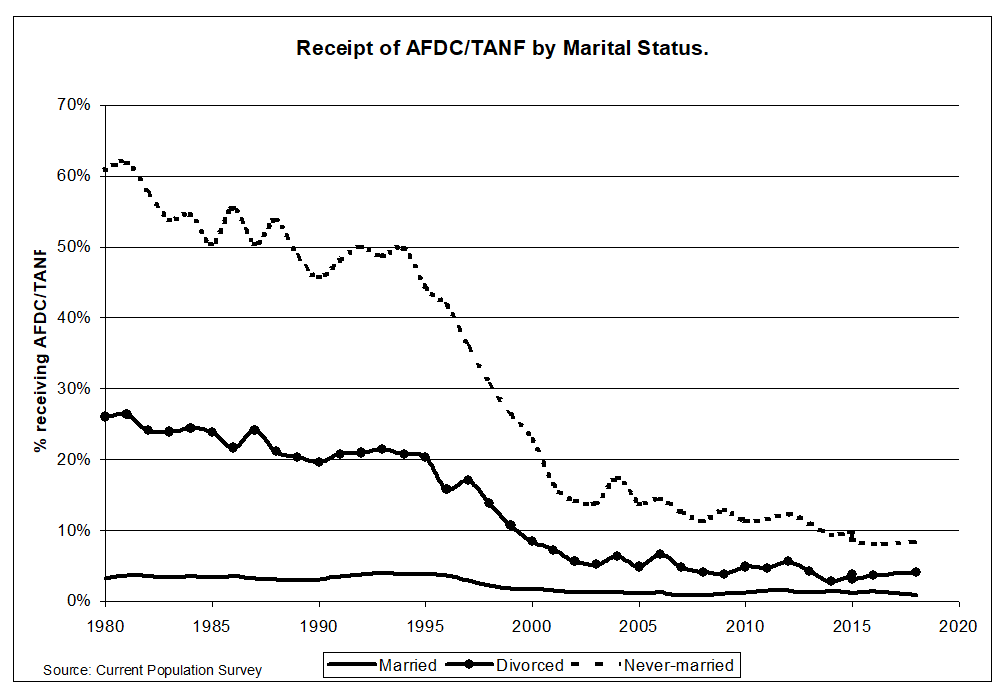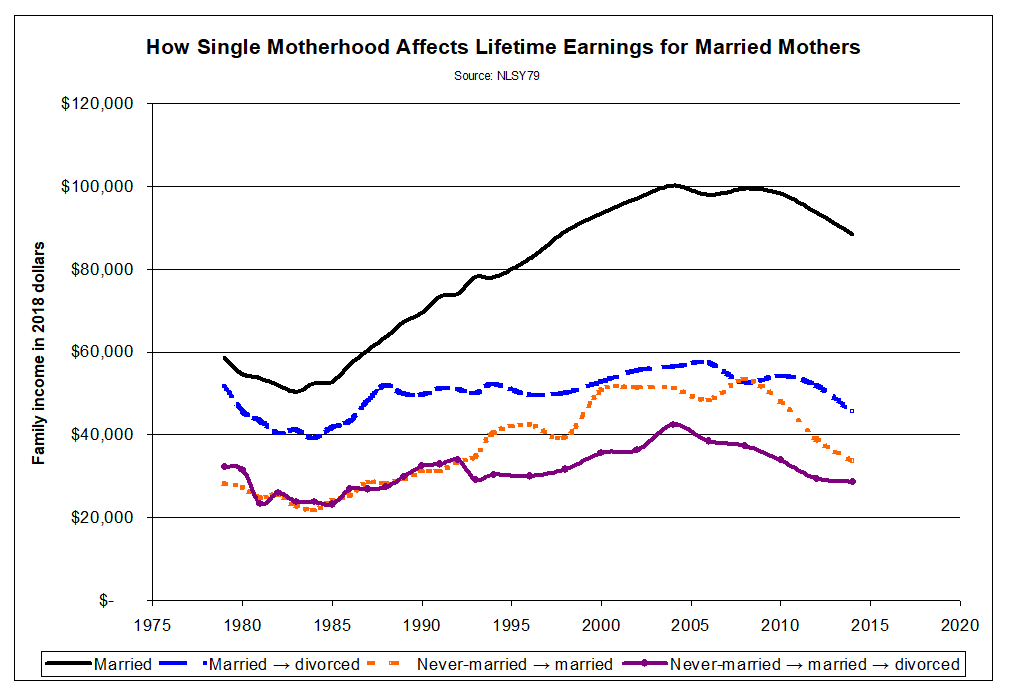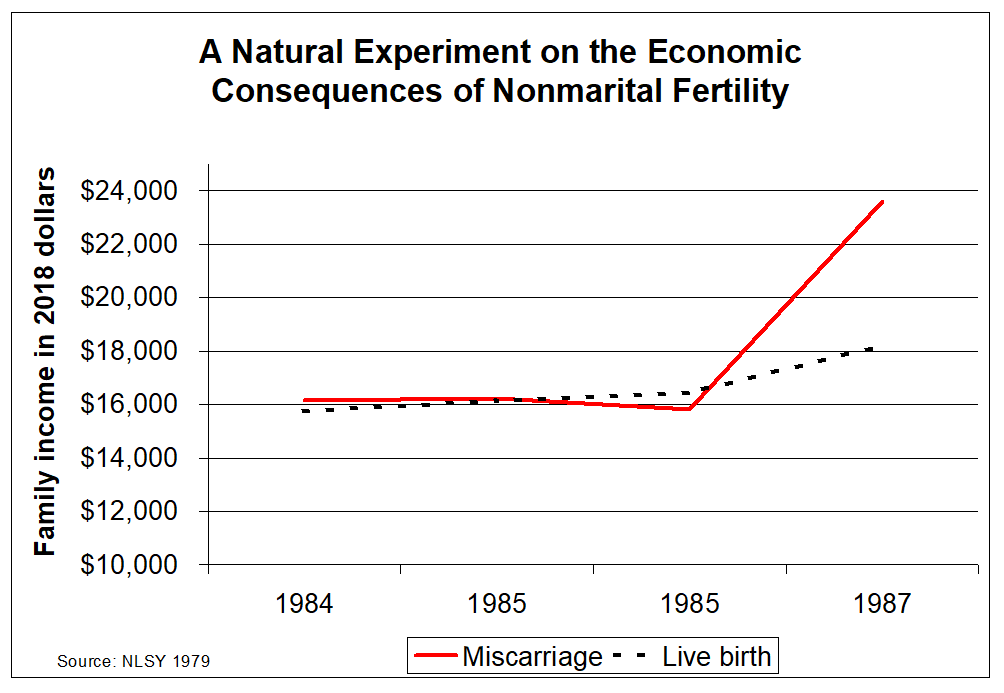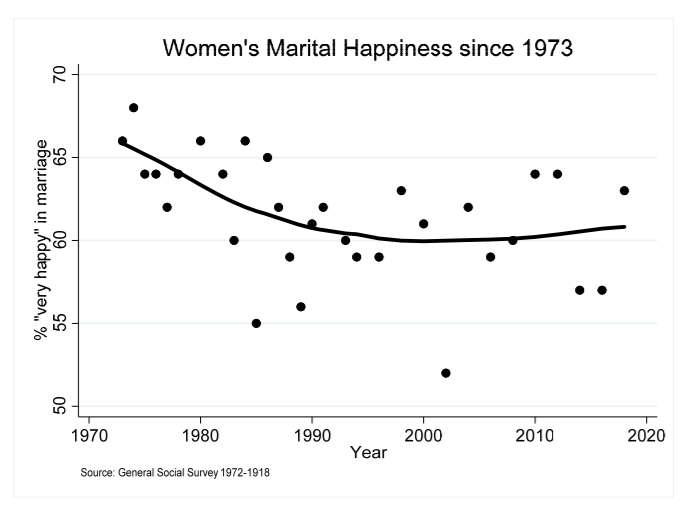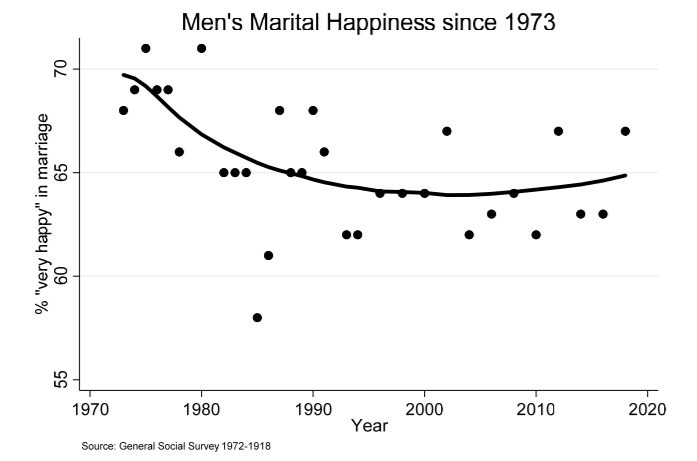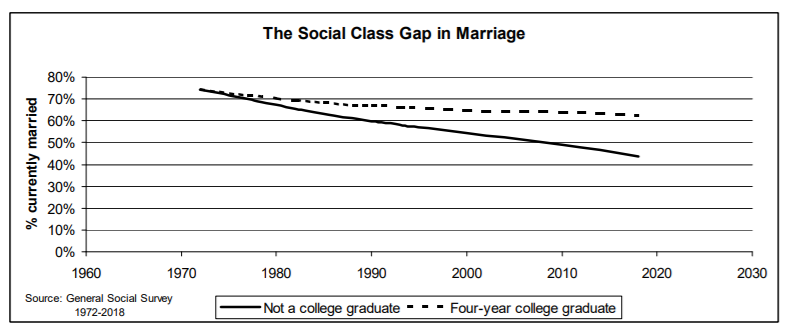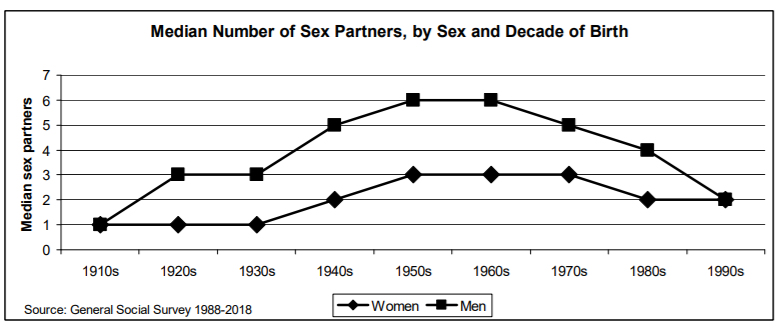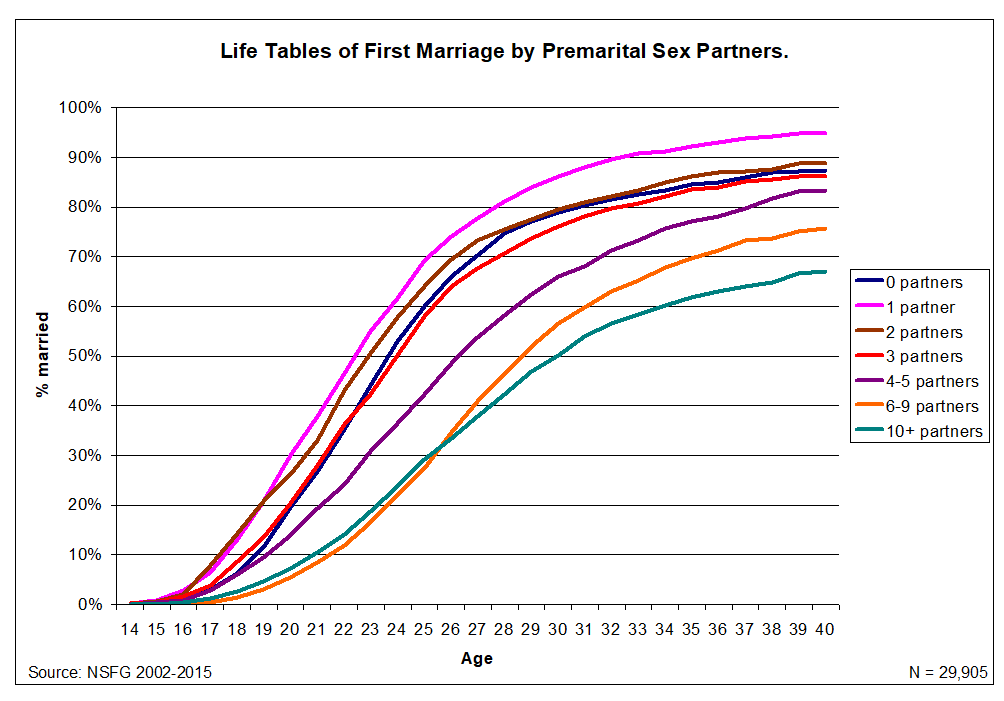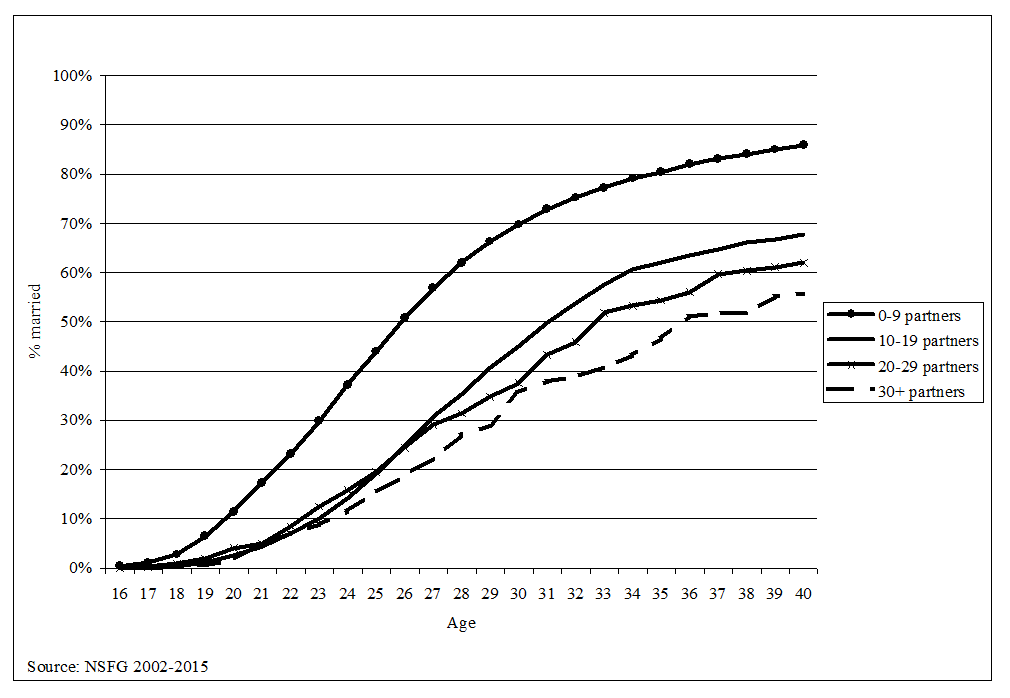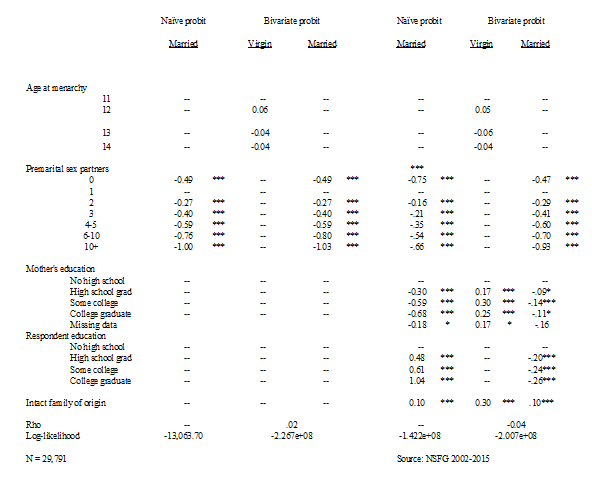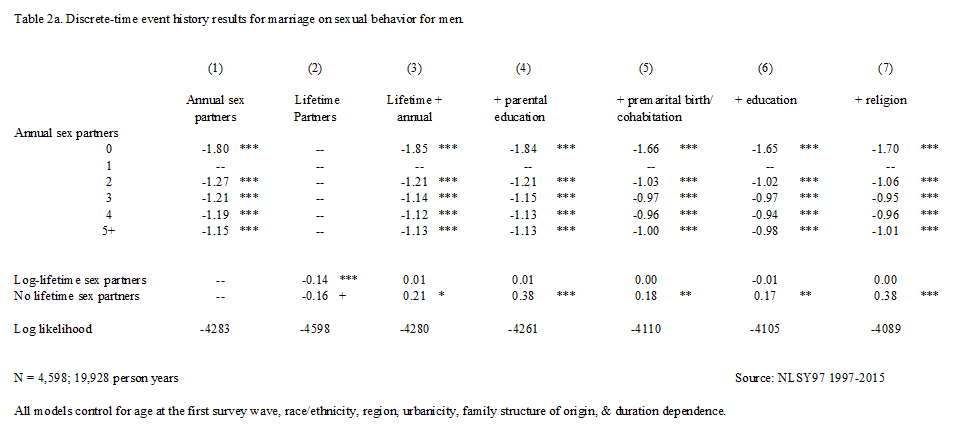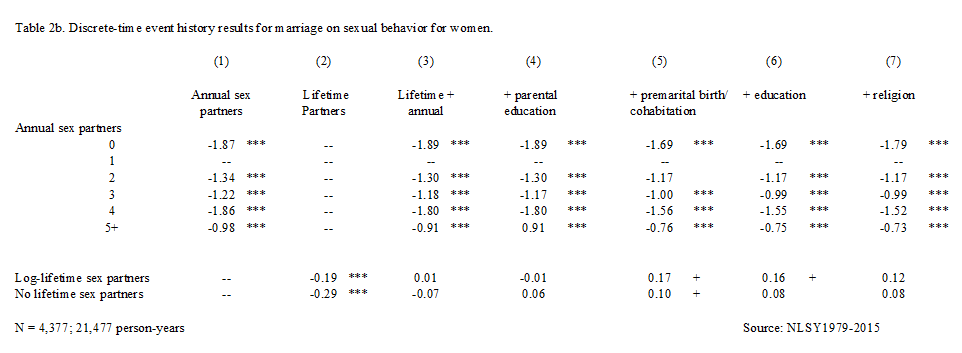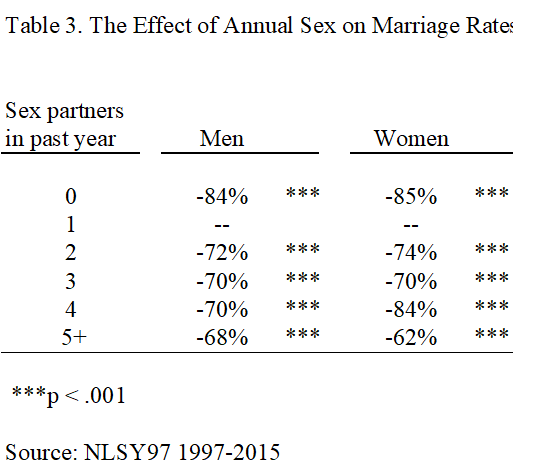Thread on my research & writing in the past year. It's a fairly slender thread, as I spent the most time on my long-overdue book on the economics of single motherhood, coauthored with @profmckeever.
/1
/1
It's been the Duke Nukem Forever of books, but I'm happy to say that everything other than the conclusion has been drafted. The book is intended to be data-heavy, with the contract stipulating 100 figures. Here are a couple of examples.
/2
/2
Receipt of cash transfers from the government has plummeted for all mothers, largely erasing the large gaps between divorced mothers & women who gave birth out of wedlock.
/3
/3
Single motherhood leads to substantially lower lifetime incomes, even if mothers eventually tie the knot.
/4
/4
By now you may be wondering if the effects of family structure are causal. We look at this in a couple of different waays. One is the natural experiment proposed by VJ Hotz a while back: comparing mothers to women who miscarry.
/5
http://jhr.uwpress.org/content/XL/3/683.full.pdf?casa_token=n4O5xqQu9lYAAAAA:vPCMxOjkjC_lc0_mBSBZSk-9A24YoG4qlcMlLHN-fGPOnHBBLFnT4pLi53X95shrnD8qUpcAyw
/5
http://jhr.uwpress.org/content/XL/3/683.full.pdf?casa_token=n4O5xqQu9lYAAAAA:vPCMxOjkjC_lc0_mBSBZSk-9A24YoG4qlcMlLHN-fGPOnHBBLFnT4pLi53X95shrnD8qUpcAyw
Our results suggest that never-married mothers would indeed be impoverished even if they'd never given birth.
/6
/6
Moving on, I wrote a chapter for an edited volume on how the family has changed over the past 50 years. My conclusion is that expressive individualism, defined therein, is most responsible, with assists from growing inequality & contraception.
/7
https://osf.io/preprints/socarxiv/rst5k/download
/7
https://osf.io/preprints/socarxiv/rst5k/download
My takeaway is that the changes to the family since the 1960s haven't always been easy, but they've been necessary. Many components of family well-being have stabilized & started to bounce back, such as marital happiness.
/8
/8
That having been said, I agree with my longtime collaborator @WilcoxNMP that the social class gap in marriage is of enduring concern, & has serious implications for American society.
/9
/9
Next, I wrote a paper w/ @socofthesacred on the effects of premarital sex partners on marriage rates. Sociologist Mark Regnerus controversially argued that men don't want to get married anymore because they have easy access to sex. Is it true? Spoiler: No.
/10
/10
(Note that most men really don't have a ton of sex partners anyway, so the theory relies on the *perception* of easy access to sex.)
/11
https://ifstudies.org/blog/nine-decades-of-promiscuity
/11
https://ifstudies.org/blog/nine-decades-of-promiscuity
Retrospective data from the National Surveys of Family Growth indeed suggest that more sexy time= less marriage.
/12
/12
Age at menarche & some other stuff allowed us to identify seemingly unrelated bivariate probit models, suggesting causal relationships between nonmarital sex & marriage.
/14
/14
But here's the catch: panel data from the National Longitudinal Survey Youth's 1997 cohort show that it's only partners in the last year that reduce the likelihood of marriage, not lifetime partners.
/15
/15
The effect of multiple sex partners (or no sex partners) on the odds of marriage are strong, but only temporary. We cut down on the philandering when we're ready to get serious.
/16
/16
And finally, writing for @FamStudies, I made another plea for the newly implemented federal guidelines for adjudicating allegations of sexual misconduct on campus.
/end https://ifstudies.org/blog/a-plea-for-the-new-department-of-education-guidelines-on-campus-sexual-misconduct
/end https://ifstudies.org/blog/a-plea-for-the-new-department-of-education-guidelines-on-campus-sexual-misconduct

 Read on Twitter
Read on Twitter